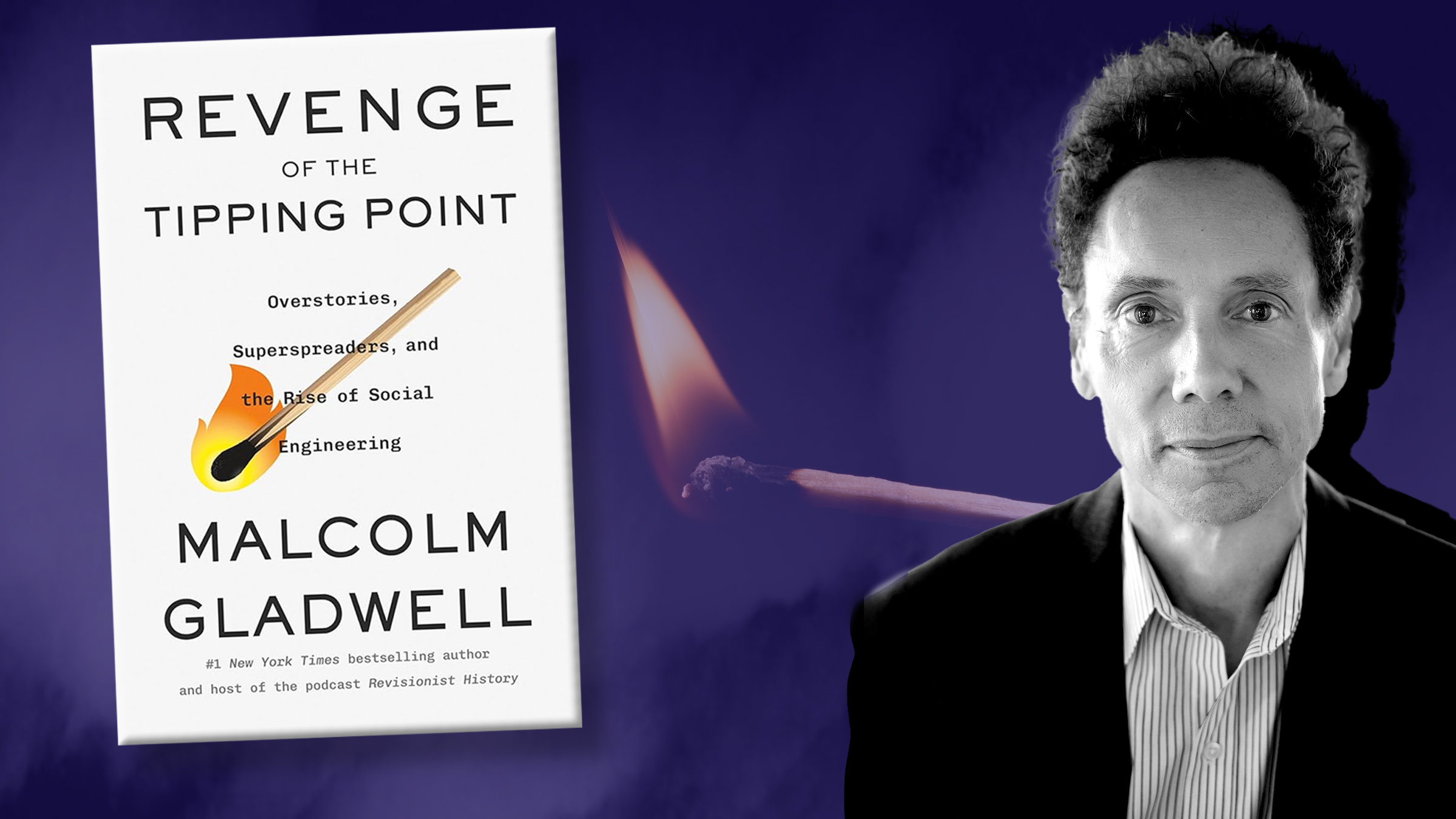OUR GUEST
Bestselling Author of “Revenge of the Tipping Point”; Co-Founder of Pushkin Industries
GUEST MODERATOR
Journalist and Co-Host of the Semafor Podcast “Mixed Signals”
This week:
- New episode: Malcolm Gladwell on revisiting his arguments 25 years later
- The two mistakes you can make in not admitting your errors
- Your Sunday reading list
For many of us, it’s hard to admit to ourselves — and other people — that we can be wrong. Whether it’s about political issues, personal experiences, or social trends, the facts we come across tend to shape how we think and feel about the world around us. But as we like to showcase here at Open to Debate, changing your mind isn’t a detriment, it’s a sign you’re growing as a person.
This week, guest moderator Nayeema Raza speaks with one bestselling author and previous debater who has done just that. Malcolm Gladwell recently published “Revenge of the Tipping Point: Overstories, Superspreaders, and the Rise of Social Engineering”, which is a sequel to, and re-evaluation of, his seminal 2000 book “The Tipping Point: How Little Things Can Make a Big Difference.”
To hear more about the ideas Malcolm Gladwell has changed his mind on, what he has learned from his critics, and much more, listen to the conversation on your favorite podcast platform, WNYC, and YouTube. As always, let us know what you think.
POINT/COUNTERPOINT
Malcolm Gladwell on the Importance of Admitting Mistakes
Malcolm Gladwell
“If we learned in 2013 that the theory of the [Tipping Point] — or if we learned in that period, 2013 to 2019, that the theory of Broken Windows was wrong, ‘stop and frisk’ was a mistake — why didn’t I put my hand up and say ‘I was wrong’ back then? Why did five, six, seven years pass before I admitted that I’d been in error? The answer is because it’s hard to admit you’re in error. Because I wasn’t thinking about correcting myself. Because I wasn’t making a habitual practice of going through the evidence that I had used previously. I can give you all kinds of excuses about why I didn’t do it right away, but the bottom line is, it’s not something we do naturally or intuitively as human beings. I think what we do is we just assume we were right, and we keep on going and moving forward. I think you have to make a deliberate practice out of revisiting your positions and I didn’t get to it until 2023 or 2024, right? That’s on me. That is a second mistake. My first mistake was to think, when I wrote ‘The Tipping Point,’ that I had the answer, when in fact all we had was a kind of very preliminary observation. My second mistake was taking too long to revisit my first mistake.”
WEEKLY POINTS OF VIEW
AI will help us understand the very fabric of reality
Demis Hassabis and James Manyika | November 18, 2024
Fortune
Watch James’s debate on whether globalization has undermined America’s working class
John Tierney | November 19, 2024
City Journal
Watch John’s debate on whether Walmart has been good for America
Productive Knowledge Workers Are Fueled by Curiosity
Adrian Wooldridge | November 19, 2024
Bloomberg
Watch Adrian’s debate on whether meritocracy is overrated
The Biggest Surprise at the Met’s Egypt Show? Live Performance
Aruna D’Souza | November 16, 2024
The New York Times
Watch Aruna’s debate on whether we should separate art from the artist
Keep America Open to Changing Minds
On average, 32% of the Open to Debate audience changes their mind after hearing a debate. That’s the transformative power of thoughtful dialogue. Staying open to new perspectives doesn’t just change minds—it can help change our country and the world for the better. Donate today to support debates that inspire meaningful change.




















